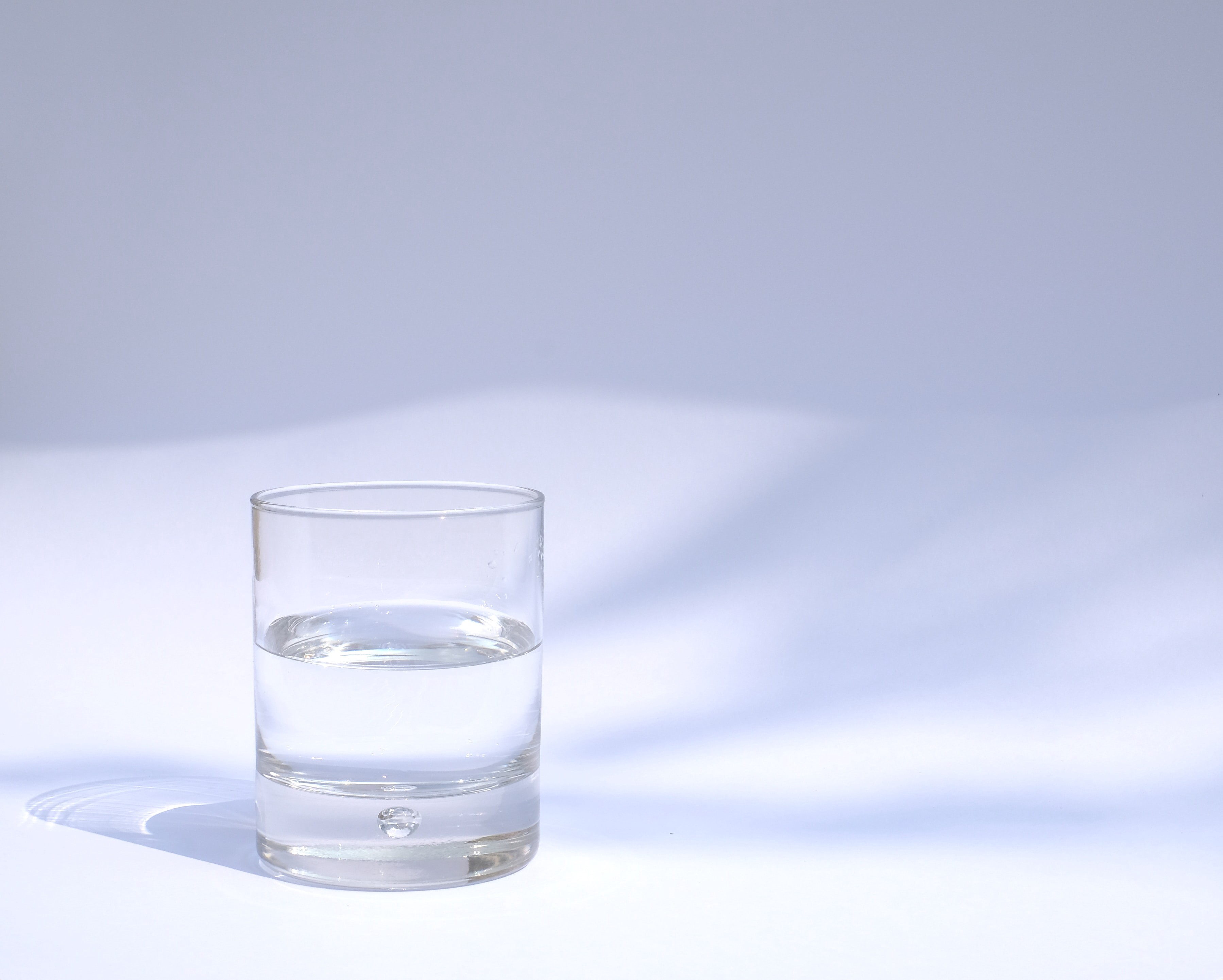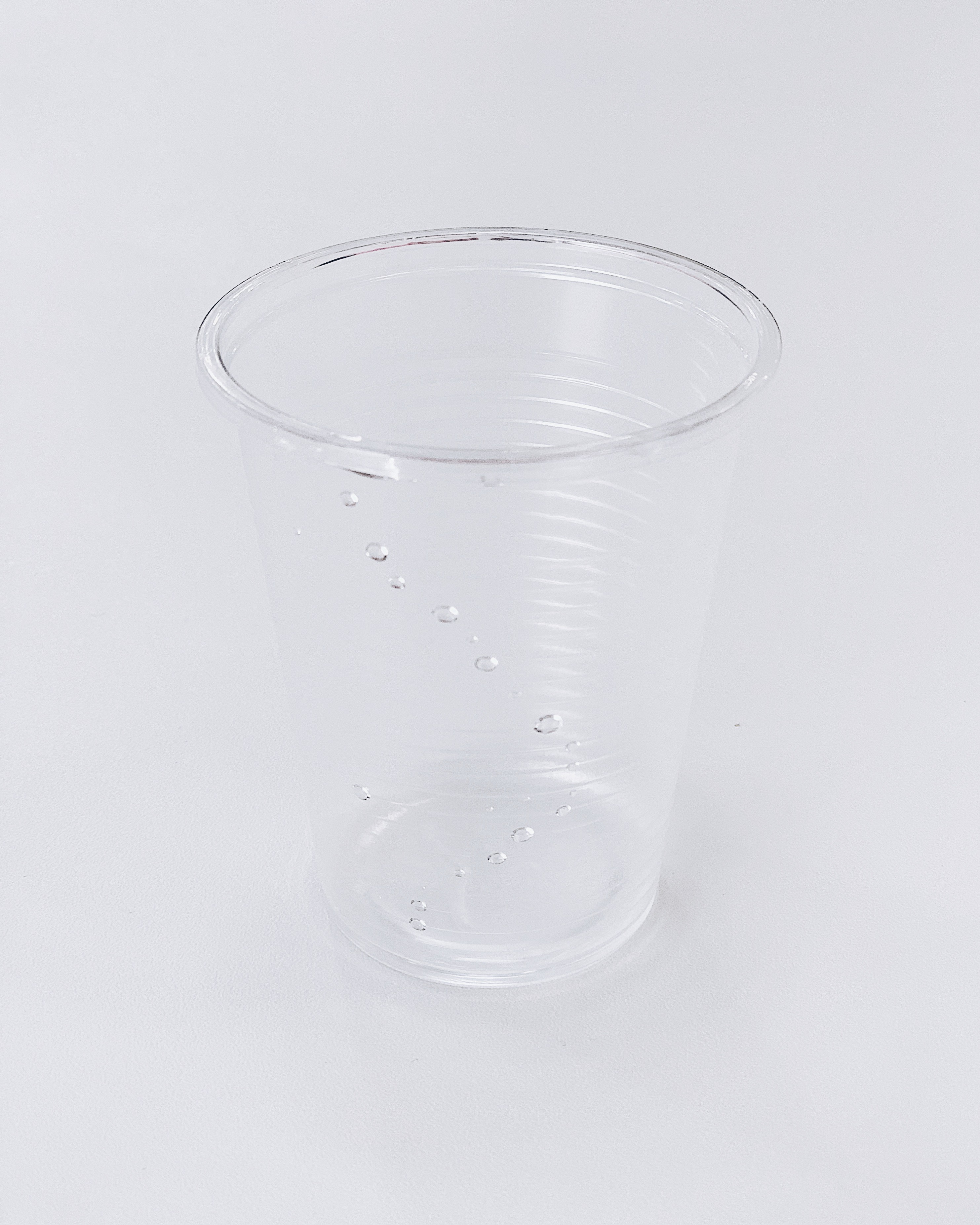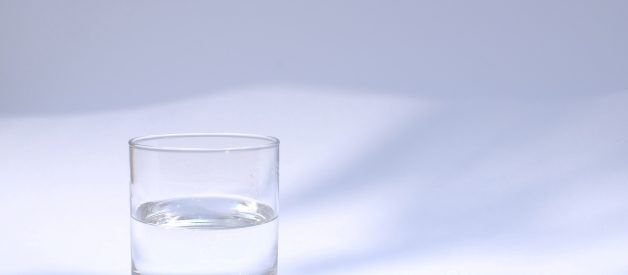Why I loved ? and hated ? not eating for a week
 Photo by manu schwendener on Unsplash
Photo by manu schwendener on Unsplash
It?s funny the things you find while browsing the Internet at 4am. A couple weeks ago while glued to my laptop at precisely this time, I came across a Youtube video called ?7 DAY WATER FAST ? NO FOOD OR DRINK FOR A WEEK.? It had a whopping 7.4 million views.
Though sleepiness was beginning to set in and the video was a bit longer than I would have liked, I decided to watch; I was intrigued. How could a person only drink water for a week? What sort of insane willpower would drive this kind of self-torture?
The video depicted the experience of a man called Lou who decided to only drink water for a full week, in hopes it would help cure his chronic aches and pains stemming from rheumatoid arthritis. Great, I thought, another pop science nutrition fad with no real empirical backing. Surely it?s one of those things that people label as a miracle cure, only to find out years later it actually causes permanent damage to your body. Like diet pills or fruit-only meal plans.
But as I kept watching video, the idea of water fasting started to grow on me. After Lou?s 7 day fast, the guy went from experiencing debilitating daily back pain to having absolutely no pain at all. Interest piqued, I decided to do more in-depth research on the concept of water-fasting. And things began to make sense. I found multiple scientific studies from established sources backing up the idea of fasting, as well as articles written by doctors and nutritionists praising it for its benefits.
At that?s when I decided, at 5am, that I was going to do a water fast.
What is Water-Fasting?
Fasting has become increasingly popular in the US today. According to MedicalNewsToday and the New York Times, fasting dates back thousands of years, having been historically practiced all around the word for spiritual and religious reasons. However, it is only more recently that fasting has emerged in pop-culture as a part of the wellness and mindfulness movement. People often pair fasting with mindfulness practices like meditation.
You may be familiar with intermittent fasting, a feeding method endorsed by celebrities like Hugh Jackman, where a person eats all their meals in a small window of time ? typically within 8 hours. Water fasting is similar, except it extends that fasting period for multiple days. Water fasting is exactly what it sounds like. No juices, teas, gum, food of any kind during the fasting period; literally nothing except water. The exception is that you can ingest salt and potassium to avoid feeling dizzy and keep electrolytes in balance.
Based on the blogs I read of water-fasting experiences, I found that people typically do water fasts for 3?14 days (although some claim to have fasted for upwards of 30 days!). Doctors recommended fasting for 3?7 days to feel optimal benefits.
Why Water-Fast?
So, what benefits exactly does water-fasting claim to offer? After browsing multiple medical information sites (like this one and this one), news articles (like this one by the New York Times), personal blogs (like this one and this one), and articles posted by doctors (like this one and this one), I discovered that water fasting is purported to have multiple health benefits, many of which are backed by science. Though there is some debate in the medical community as to whether fasting is a sustainable and safe method of weight loss and detox (and whether it damages metabolism), there is emerging evidence that fasting has short and long-term health benefits. These benefits are listed below.
1. Fasting Promotes Autophagy
Research shows that fasting promotes a detoxification process called autophagy by putting the body under stress. Scientists believe this occurs as a protective mechanism, increasing during times of stress (like fasting) to help us get through tough times. During autophagy, the body cleans and recycles old cellular materials, undergoing a detox. It may reduce risk of cancer by cleaning out old cells at risk for mutations.
2. Fasting May Decrease Risk of Diabetes, Heart Disease, and Cancer
Director of the Longevity Institute at USC, Valter Longo, conducted a fasting study on mice. The study demonstrated that 2?5 days of fasting each month reduced biomarkers for diabetes, cancer and heart disease, perhaps due to lowering levels of insulin and certain growth factors.
If you aren?t convinced by mice studies, there is also human-based scientific evidence for this phenomenon. Krista Varady, an associate professor of nutrition at the University of Illinois at Chicago, conducted alternate day fasting trials lasting up to 10 weeks with obese adults, finding marked reductions in LDL cholesterol, blood pressure, and insulin. These biomarkers are linked to diabetes and heart disease.
3. Fasting leads to weight loss
Fasting promotes ketosis, a process in which your body switches from burning carbs for fuel to burning fat for fuel. Once your body depletes all of its stashed sugar (stored as glycogen), your body has no choice but to begin dipping into fast reserves. The more fat you burn, the more weight you lose. Many of the water-fasting experience blogs I read reported losing up to 20 pounds of weight (some of it water-weight) in only 5 days!
4. Fasting promotes brain health
Fasting has been shown to improve neurological disorders like epilepsy. Dr. David Ludwig, a professor of nutrition at Harvard, argues that ketones produced by water-fasting have significant positive effects on the brain, particularly for those suffering from epileptic seizures.
?There are extensive reports of children who had debilitating seizures who were cured on ketogenic diets,? said Dr. Ludwig to the New York Times. ?If it benefits the brain to prevent seizures, then maybe it benefits the brain in other ways.?
Fasting has also been linked to increased levels of Brain Derived Neurotrophic Factor (BDNF), a growth factor which helps with cognitive related deficiencies and supports growth, differentiation, and survival of neuronal cells. This may be why people often report augmented mental clarity while fasting ? something described in all of the blogs I read.
5. Fasting improves auto-immune disorders
Small-scale studies have shown that fasting can improve auto-immune disorders (at least in the short-term) like rheumatoid arthritis and asthma. If you recall, the original water-fasting YouTube video I watched involved a man with rheumatoid trying to cure his chronic pain.
 Photo by Sarah Dorweiler on Unsplash
Photo by Sarah Dorweiler on Unsplash
Why Did I Decide to Fast?
All these benefits sounded great ? weight loss, improved mental health and clarity, decreased anxiety, increased longevity. Who wouldn?t want all those things?
However, three of the potential benefits stood out to me. These were my primary reasons for completing the water-fast:
- Improve mental clarity and reduce anxiety: This was my number one goal. I had been dealing with a bit of brain fog, melancholy, and anxiety over the past year. I needed a reset, and a water fast promised to give me that.
- Lose weight: I ran varsity track and field in college, practicing for multiple hours each day. Because of this, I never really had to concern myself with food intake (even though I probably should have). I ate when I wanted, what I wanted, as much as I wanted.Over the past year I graduated college, stopped running, and began graduate school. I became substantially less active, spending hours sitting at a desk doing work instead of biking between classes or running at the track. I put on 10 pounds or so, and I wanted to lose it.
- Exercise self control and mindfulness: I also wanted to prove to myself that I could control my eating and be more appreciative/mindful about what I was putting in my body. I had never successfully completed a calorie-restrictive diet before this fast ? as I said above, I never seriously considered limiting my intake or eating more healthfully. In high school, college, and even graduate school, It wasn?t unusual for me to scarf down a whole roll of cookie dough or entire pan of cinnamon rolls in one sitting. My eating was mindless and addictive. I realized that as I entered young adulthood, I needed to start exhibiting some self control over what I ate, both for current health and future longevity. Moreover, I wanted to be more appreciative of food; as Americans, we live in a culture of excess, particularly excess food. I wanted to be mindful of this excess and in doing so become less likely to binge. Having access to whole and healthy foods is a privilege, one I felt I should be more cognizant of.
So, with these goals in mind ? and a final buffet dinner in my stomach ? I decided to embark on a 7 day water fast. I wanted to jump right in with a longer fast to test my willpower and feel optimal benefits. I completed this fast alongside my twin sister, which was a HUGE help; I don?t think I could have gotten through it without her moral support.
My Experience: No Food or Drink for 7 Days
My 7-day fast pushed my mental and physical limits. As you probably guessed, not eating for 7 days is an extreme test of willpower.
The Logistics
On the water fast, I drank WATER ONLY. Some people add in tea or broth, but I stuck to water. The only extracurricular ingesting I did was adding salt and minerals in to keep electrolytes in balance.
Although some recommend avoiding use of toiletries (no soap, toothpaste, and lotions during the fast) because these products can leach through the skin and be metabolized by your body, that felt too extreme to me. I bathed, washed, and lotioned as normal. I also exercised normally.
The fast began around 7pm on a Wednesday evening and ended on 7pm the following Wednesday. I chose to do the fast during this time because I?m currently on a break between grad school and my first full-time job (eeek!), so I don?t have many commitments that might be derailed.
It?s now been about a week since I?ve ended the fast, and I wanted to reflect on my experience and takeaways.
The Bad Parts
Like I said, fasting was tough. The toughest parts were:
- Cravings and Boredom: I was thinking about food ALL THE TIME. The cravings were intense. I would literally spend hours each night before bed scrolling through pictures of food on Instagram and watching recipe videos on Youtube, carefully planning my next meal. And not just because I was hungry ? the hunger disappeared after a day or two? but because I was bored and wanted stimulation. Life without food becomes less colorful and more monotonous, at least in the beginning. It was hard. I felt like I had nothing to look forward to. Whether you realize it or not, we all use food to break up our day into manageable chunks, as well as to reward ourselves. We often think: If I just finish this work, I can eat lunch, or Thank god, it?s almost dinner time. When you water fast, these periodic breaks in your schedule become empty holes filled with nothing but boring old water. Not satisfying, not rewarding. Fasting helped me realize just how much time I spend prepping food, eating food, thinking about food, planning food. It helped me re-center myself and focus on other things besides food, revisiting old hobbies and re-evaluating the way I used food as a crutch.
- Lethargy and Some Dizziness: When you don?t eat, your body gets tired. Though you will likely have bouts of high-energy, you will also experience periods of lethargy, especially in the beginning. Some days, all I wanted to do was sit on the couch and stare at the wall. I couldn?t even muster up enough energy to watch a television show. Sadly, I never had the intense, high energy, euphoric feelings many people claim to experience on day 4 or 5.I also felt dizzy when standing up sometimes, having to stabilize myself against the nearest table or chair to avoid falling. This problem was (somewhat) ameliorated by introducing more electrolytes into my water.
- Social Life Difficulties: It is not until you stop eating that you realize so much of your life revolves around food and drink, especially social life. Want to catch up with friends? Let?s go to lunch. Hang out with your family? Have dinner or drinks together. Relax after a hard workout with your gym partner? Have a smoothie. Network with colleagues? Grab coffee. I found myself having difficulty fulfilling social obligations, turning down hangouts because I didn?t want to be tempted with food or explain why I wasn?t eating.
- Sleepless nights: Throughout the fast, I had trouble falling asleep. I would often be up to 4 or 5 am, unable to slow my thoughts. I read online that this is a common side effect of fasting ? an evolutionary adaptation designed to help us find and forage for food instead of sleeping during a starvation period.
The Good Parts
In spite of all the onerous parts of fasting, there were also many amazing benefits. What?s more, these many of these benefits persisted after the fast ended (I?ll write more about post-fast experience in another article). The good parts of fasting were:
- Mental Clarity and Anxiety Reduction: This was the biggest and best effect of water-fasting in my opinion! Though my body felt tired, my brain felt sharp. I had incredible focus, able to devote laser attention to any task I was doing. Words came quickly and easily, as did ideas. I also noticed a marked reduction in anxiety. For the first time in a while, I felt completely calm and at ease for the majority of the day. I also felt more upbeat and optimistic. These mental health benefits have persisted after the fast to a degree. One week later, my brain still feels more positive, less anxious, and more focused. It was like I hit a much-needed reset button!
- Weight Loss: Weight loss is definitely a perk of water-fasting, although you may not loose as much weight as you think. It?s important to keep in mind that much of the weight loss is water weight. Why? Well, every bit of glycogen stored in your body is packaged with water molecules. Depleting your body of glycogen stores by fasting will cause all that packaged water to be lost, resulting in a marked weight reduction. I lost a total of 11 pounds over the course of the 7-day fast, going from 140.0 lbs down to 129.2 lbs. Half of this was water weight! 1 week after the fast, I weighed in around 135.
- Better Self Control: Fasting helped me learn to control my eating habits and gave me the confidence I needed to do so. After resisting the temptation of food for 7 days, resisting a donut after dinner seemed like child?s play in comparison.
- Clear Skin: All my acne completely disappeared during the water fast (probably because my usual diet consists of lots of inflammatory foods). One week later, my skin is still spotless.
- Asthma and Allergy Improvements: I noticed that my asthma and allergies showed marked improvement during and after the fast. I didn?t have to take my inhaler or apply steroid cream to allergy-induced rashes nearly as often.
- Newfound appreciation for food: Lastly, the fast helped me appreciate how amazing it is to have access to delicious, healthy food on a daily basis. When I had my first meal after not eating for 7 days, I could taste every single subtle flavor in the salad I made myself. Even plain spinach leaves tasted incredible. Being truly thankful for the food we have and appreciating all the amazing flavors that make up a dish encourages mindful eating, which in turn helps avoid binging. 1 week later, I?m still much more mindful and appreciative of the food I put in my body.
Day by Day Breakdown
For those of you who are interested, I have included a stream-of-consciousness daily breakdown of my fasting experience.
Day 1
Weight: 140.0 lbsNotes: Felt fine, nothing much to report. Honestly very easy to not eat because I was so full from the giant buffet I ate the night before. Mostly just experiencing boredom from not eating food.
Day 2:
Weight: 138.0 lbsNotes: High energy, very productive. Low anxiety. Some hunger pangs. Really, really bored without food. I?m not even that hungry, just want some kind of stimulation. Also noticed that I had trouble sleeping. Didn?t fall asleep until like 5am.
Day 3:
Weight: 134.6 lbs Notes: Agitated in morning. Still felt okay energy wise, albeit a little spacey. Went rock climbing and felt euphoric/energy boosted after. Great mood, basically no anxiety. Much harder to climb than normal; my limbs were EXTREMELY shaky.
Day 4:
Weight: 134.1 lbsNotes: Low energy. No anxiety still, but tired and shaky. Exercise was weirdly easy ? like my legs were numb. No hunger, but cravings for certain flavors felt even more intense. Sense of smell was heightened. Began noticing food EVERYWHERE.
Day 5:
Weight: 132.0 lbs Notes: Less hungry. Slower speech, Energy coming in waves. Pretty tired overall though. Body was lethargic but brain was alert; felt focus and sharpness mentally once I rallied myself enough to work on a task. Could not fall asleep until 6am. Spent a lot of time looking up pictures of food.
Day 6:
Weight: 131.6Notes: Woke up feeling ok, better than other days. Probably the most (mental) energy and focus I had. Really no hunger at all. Food fantasizing decreased. Again, moderately tired but mentally sharp. Zero anxiety, which is amazing.
Day 7:
Weight: 129.2Notes: The final day! Extreme tiredness is back. Very dizzy. Eating dinner was AMAZING. Everything tasted super salty and flavorful. Really wanted carbs, tried to refrain. Went to the dentist and he commented that my blood pressure was ideal. That?s a plus, because it?s normally too high.
Final Thoughts
 Photo by Martino Pietropoli on Unsplash
Photo by Martino Pietropoli on Unsplash
A 7-day water fast may not be for everyone; it requires extreme dedication and restraint, which may not be conducive to certain work schedules or environments.
Completing a fast helped me restore my control over eating habits and pushed me to become less reliant on food as a source of entertainment and pleasure…for now at least. Though it did result in some sleepless nights, lethargy, and an almost painful level of boredom, I think it?s safe to say the benefits outweighed the drawbacks (at least in my opinion). I feel like my body and brain have been reset ? I have less anxiety, more mental clarity, and better skin. I have a renewed sense of ownership over my health, and a healthier, more appreciative relationship with food. Hopefully it lasts!
One thing to note: if you are just doing a water fast JUST to lose weight, I wouldn?t recommend it. You mostly just lose water weight, and the weight can come back on rather quickly if you don?t watch what you eat. That said, it is good if you want to re-evaluate your relationship to food and get a fresh start for a new diet!


